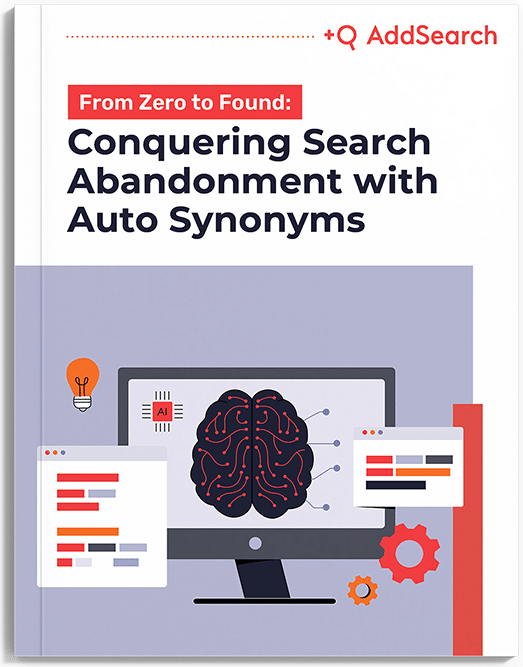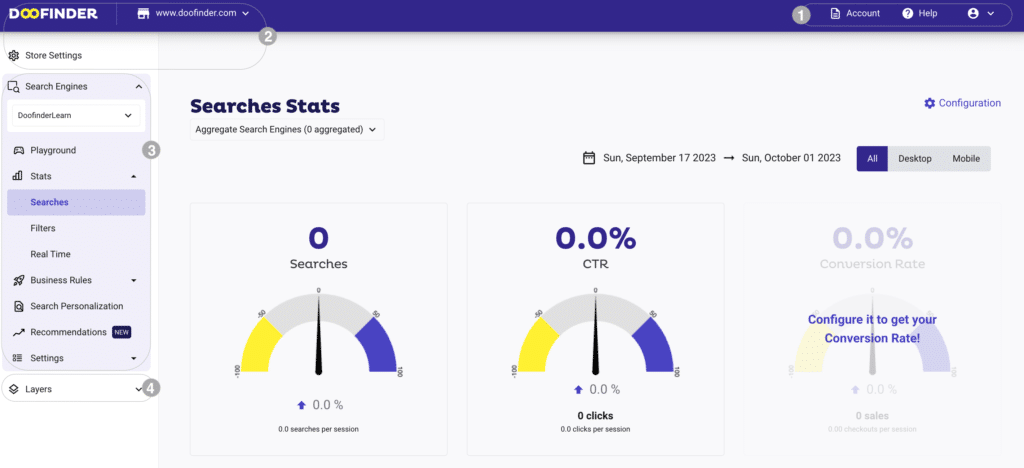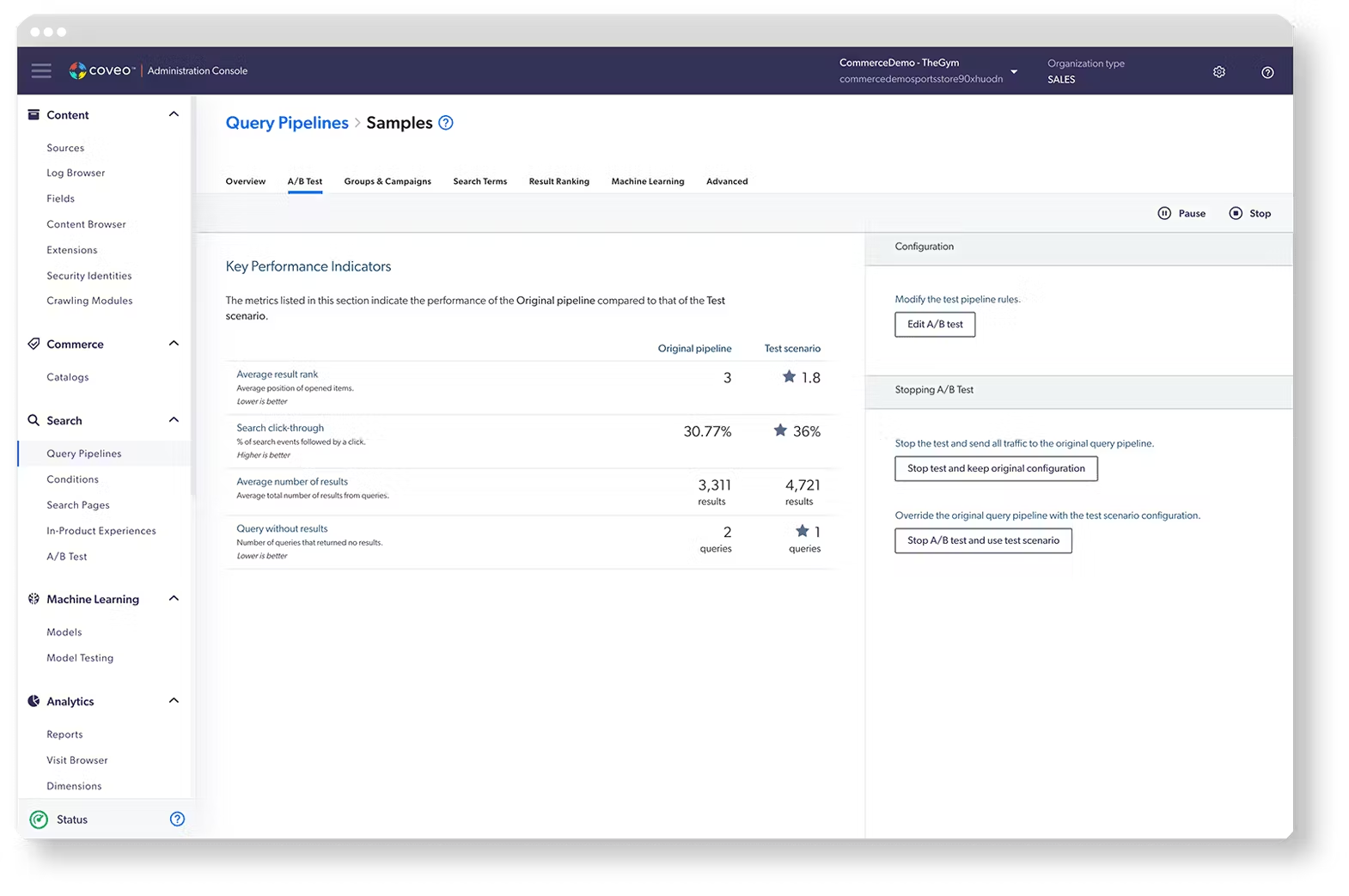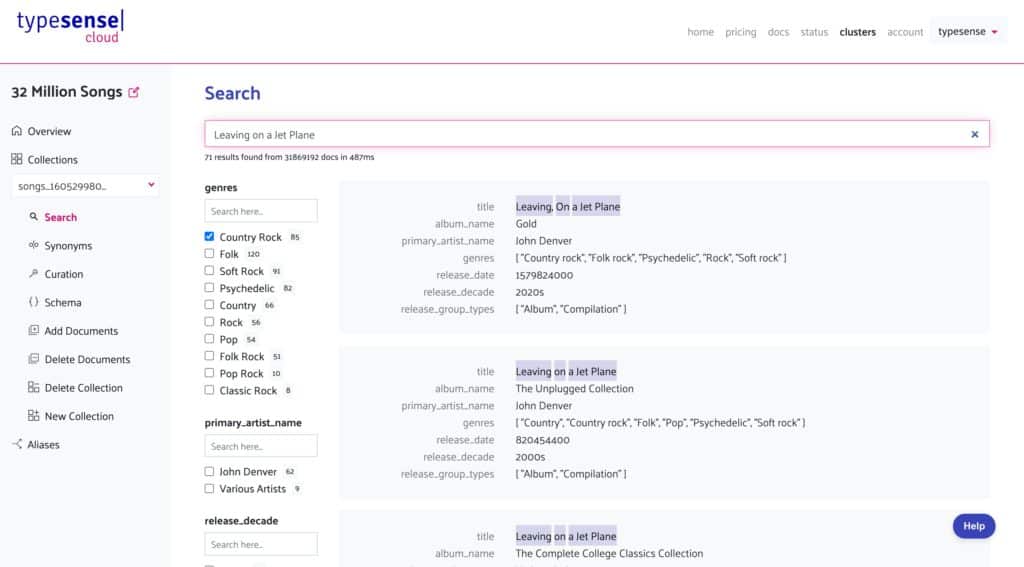Algolia is undeniably a powerful search and discovery platform, celebrated for its speed, scalability, and robust feature set. It’s a popular choice for businesses seeking a top-tier search solution. However, Algolia might not be the perfect fit for every website. Its comprehensive features can come with a hefty price tag and a steep learning curve, potentially overwhelming smaller businesses or those with limited technical resources.
The good news is that several compelling Algolia alternatives are available, each offering unique strengths and catering to different needs and budgets. Whether you’re seeking a more user-friendly interface, a cost-effective open-source solution, or a highly customizable search experience, there’s an alternative out there that can elevate your site’s search capabilities without breaking the bank or requiring extensive technical expertise.
In this post, we’ll explore five powerful Algolia alternatives. These alternatives can transform your website’s search functionality and deliver a superior user experience. We’ll delve into their key features, pricing, pros, cons, and ideal use cases, empowering you to make an informed decision and choose the perfect search solution for your specific needs.
1. AddSearch: The Best Algolia Alternative
AddSearch is an AI-powered search and discovery platform designed to elevate your website’s search capabilities and boost user engagement. Unlike some competitors that focus solely on search, AddSearch offers a comprehensive solution that combines a powerful internal search engine for websites with personalized content recommendations. This dual functionality makes it a compelling alternative for businesses seeking to enhance the entire user journey, from discovery to conversion.
Pros:
- Unified Search & Discovery: AddSearch seamlessly integrates site search with content recommendations, providing a holistic approach to user engagement. This means you can not only help users find what they’re looking for but also proactively suggest relevant content to keep them engaged and drive conversions.
- Intuitive Interface and Easy Setup: AddSearch prioritizes user-friendliness, offering an intuitive interface and a straightforward setup process that requires no coding or technical expertise. This makes it an ideal choice for businesses of all sizes, including those without dedicated development resources.
- Flexible Customization: Tailor the search and recommendation experience to match your brand’s unique identity. AddSearch offers extensive customization options, allowing you to control the look and feel of your search bar, results pages, and recommendation widgets.
- Intelligent Recommendations: AddSearch’s recommendation engine leverages AI and machine learning to deliver personalized content suggestions based on user behavior, preferences, and real-time interactions. This ensures that your recommendations are always relevant and engaging, increasing the likelihood of conversions.
- Dedicated Support: AddSearch provides exceptional customer support, ensuring that you have the guidance and assistance you need to get the most out of the platform.
Considerations:
- Learning curve: Although AddSearch is designed for ease of use, its advanced features and customization options may require some time and effort to master fully, especially for users who are new to search engine optimization.
Pricing: AddSearch offers three pricing tiers: Professional, Premium, and Enterprise.
Professional: $99/month
- Easy-to-use, fast search solution
- Ideal for small websites
Premium: $499/month
- Advanced search solution
- Suitable for medium to large websites and eCommerce
Enterprise: Custom pricing
- Tailored for large enterprise websites
- Includes implementation support
If you want to try it out before you commit, they offer a free 14-day trial.
Best Suited For:
- Businesses are seeking an all-in-one search and discovery solution that is easy to implement and customize.
- Websites with diverse content types, including e-commerce stores, media sites, educational platforms, and more.
- Organizations that prioritize user engagement and want to deliver personalized experiences to their audience.

2. Elasticsearch
Elasticsearch is a highly scalable, open-source search engine renowned for its speed and flexibility. When combined with WordPress plugins like SearchWP or ElasticPress, it becomes a formidable Algolia alternative, particularly for large or complex websites with demanding search requirements.
Pros:
- Unmatched Scalability: Elasticsearch’s distributed architecture allows it to handle massive amounts of data and high search volumes with ease, making it a future-proof solution for growing websites.
- Advanced Search Capabilities: Elasticsearch offers a wide array of advanced search features, including full-text search, faceted navigation, customizable relevance scoring, and more. This allows for fine-grained control over search results and a highly tailored search experience.
- Open-Source Flexibility: Being open-source, Elasticsearch provides the freedom to customize and extend its functionality to meet your specific needs. This is particularly appealing to developers and technically inclined users who want complete control over their search solutions.

Considerations:
- Technical Expertise Required: Setting up and managing Elasticsearch requires technical knowledge and expertise. It may not be the most user-friendly option for those without development resources.
- Additional Costs: While Elasticsearch itself is free, you may incur costs for hosting, maintenance, and additional plugins like SearchWP or ElasticPress to integrate it with your WordPress site.
Pricing: Elasticsearch is open-source and free to use. However, you may need to invest in hosting or cloud services to run Elasticsearch effectively, and additional costs may be associated with plugins like SearchWP or ElasticPress.
Best Suited For:
- Large websites or e-commerce stores with extensive content and high search volumes.
- Tech-savvy users or organizations with dedicated development resources who can manage and customize Elasticsearch.
- Websites that require advanced search features and a high degree of flexibility and scalability.

Losing customers to no hit searches? Auto Synonyms helps turn every missed search into a successful find. Learn how in our latest white paper.

3. Doofinder
Doofinder is a robust site search platform specifically designed for e-commerce businesses. It aims to enhance the shopping experience by providing accurate and relevant search results, ultimately driving conversions and boosting sales. If your goal is to create a seamless shopping experience that converts visitors into loyal customers, Doofinder is worth a closer look.
Pros:
- E-commerce Focused: Doofinder is tailored for online stores, offering features like product filtering, merchandising, and personalized recommendations to enhance the shopping experience.
- Advanced Search Analytics: The platform provides in-depth analytics on user search behavior, allowing you to understand customer preferences and optimize your product offerings.
- Mobile Optimization: Doofinder ensures a seamless search experience across devices, including mobile, to cater to the growing number of mobile shoppers.

Considerations:
- Limited to E-commerce: Doofinder’s focus on e-commerce means it may not be the best fit for websites with diverse content types beyond products.
- Cost: Doofinder’s pricing can be relatively high, especially for smaller e-commerce businesses or those with limited budgets.
Pricing: Doofinder offers a free plan for up to 1,000 requests per month. Paid plans start at €35 per month for the Basic plan, which includes up to 10,000 requests. Their most popular Pro plan costs €59 per month for 50,000 requests and additional premium features. For high-volume needs, the Enterprise plan costs €719 per month for up to 600,000 requests.
Best Suited For:
- Small to large e-commerce businesses looking to optimize their product search and discovery experience.
- Online stores that want to leverage advanced search analytics to understand customer behavior and improve sales.
- Businesses that prioritize a mobile-optimized search solution to cater to mobile shoppers.
4. Coveo
Coveo is an enterprise-grade search and insights platform that goes beyond basic search functionality. It offers a comprehensive suite of tools designed to deliver personalized and relevant experiences across your website, intranet, and other digital properties.
Pros:
- AI-Powered Relevance: Coveo utilizes advanced AI and machine learning algorithms to understand user intent and deliver highly relevant search results. It continuously learns from user behavior to improve search accuracy and personalization over time.
- Unified Search Experience: Coveo unifies search across multiple content sources, including websites, intranets, knowledge bases, and more. This provides users with a seamless search experience, regardless of where the information resides.
- Personalization and Recommendations: Coveo’s personalization engine delivers tailored search results and recommendations based on individual user profiles, preferences, and past interactions. This creates a more engaging and relevant experience for each user.
- Advanced Analytics: Coveo provides in-depth analytics and reporting on user search behavior, content usage, and overall engagement. These insights can be used to optimize your content strategy, improve search relevance, and drive business outcomes.

Considerations:
- Complexity and Cost: Coveo’s enterprise-grade features and capabilities come with a higher price tag and may require more technical expertise to implement and manage compared to simpler search solutions.
- Overkill for Smaller Websites: Coveo’s extensive feature set may be overkill for smaller websites or businesses with limited resources. It’s best suited for larger organizations with complex search and content management needs.
Pricing: Coveo’s Base plan, which includes up to 100,000 search queries per month, starts at $600 per month. The Pro plan, starting at $1,320 per month, enables multi-site searches and multi-source digital experiences. For high-volume needs, the Enterprise plan offers volume-based pricing tailored to your specific requirements.
Best Suited For:
- Large enterprises with complex websites, intranets, or digital properties.
- Organizations that require a scalable and comprehensive search and insights platform.
- Businesses that prioritize personalization, advanced analytics, and a unified search experience across multiple content sources.
5. Typesense
Typesense is a fast, open-source search engine that prioritizes developer experience and ease of implementation. It’s a compelling alternative for those who value speed, performance, and a straightforward integration process.
Pros:
- Blazing-Fast Search: Typesense is engineered for speed, delivering search results with impressive low latency, making it ideal for real-time search applications.
- Simple and Intuitive API: The platform boasts a user-friendly API that simplifies the integration process with WordPress and other platforms, reducing development time and effort.
- Typo Tolerance and Fuzzy Search: Typesense’s search algorithm is forgiving, accommodating typos and partial matches to ensure users find relevant results even with imperfect queries.
- Scalability: Typesense can easily scale to handle large datasets and high search volumes, making it a suitable choice for growing websites.

Considerations:
- Limited Features: Compared to some other alternatives, Typesense may have a smaller set of features, lacking some advanced functionalities like faceted search or personalized recommendations.
- Requires Technical Expertise: While the API is designed to be developer-friendly, some technical knowledge is still required for setup and customization, which may not be ideal for non-technical users.
Pricing: Typesense is open-source and free to use. However, self-hosting may incur costs for infrastructure and maintenance.
Best Suited For:
- Developers and technically inclined users who value speed, performance, and a straightforward integration process.
- Websites that prioritize fast and accurate search results without the need for extensive customization or advanced features.
- Startups and smaller businesses are looking for a cost-effective search solution that can scale with their growth.
Conclusion
In the ever-evolving landscape of website technology, the right search solution can be the linchpin that elevates user experience, drives engagement, and ultimately fuels business growth. While Algolia has earned its reputation as a powerful contender, websites’ diverse needs demand a broader spectrum of solutions. This is where exploring Algolia alternatives becomes essential in finding the search solution that fits your unique requirements.
Remember, the best search solution isn’t a one-size-fits-all proposition. It’s about finding the tool that seamlessly integrates with your website, empowers your users, and aligns with your budget and technical capabilities. Take the time to explore these Algolia competitors, weigh their pros and cons, and embark on a journey toward a search experience that truly resonates with your audience.
Ready to take the next step? Start your free trial with AddSearch, one of the best Algolia alternatives, today and experience firsthand how a powerful, user-friendly search solution can transform your website.










